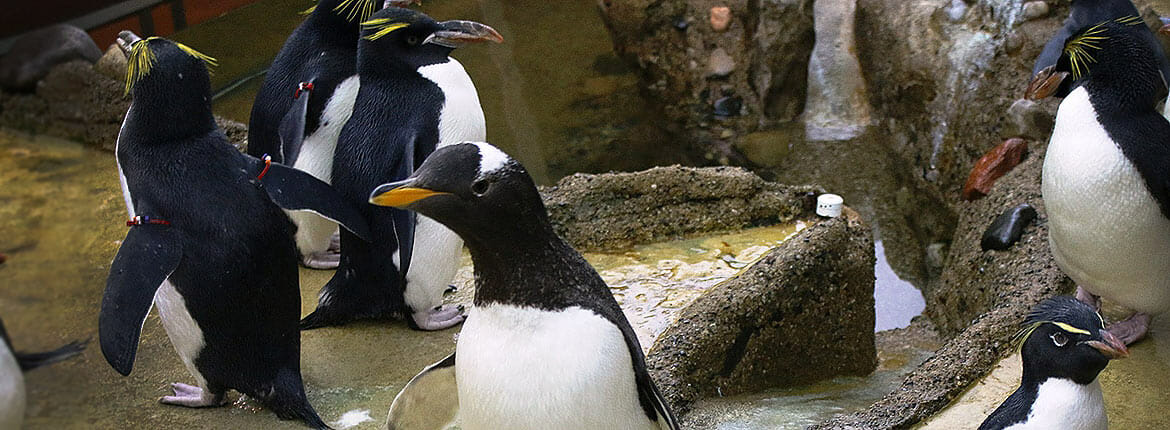Assessing the Welfare of Zoo Penguins
Despite their popularity in zoos, penguins have been little studied in the captive environment. In 2016, the Detroit Zoological Society opened the Polk Penguin Conservation Center (penguin center). As the largest facility for penguins in the world, the Penguin Center houses king, macaroni, rockhopper and gentoo penguins. The penguin center was designed to allow for a wide variety of species-appropriate behaviors and for the penguins to exercise greater choice and control. Specifically, a major increase in land space, significantly deeper and greater water space and more variety of substrates are available to the penguins in their new home. The transition of the animals from the previous habitat, the Penguinarium, to the penguin center provided a great opportunity to compare the behavior and well-being of the same group of penguins in two drastically different environments.
It is important to utilize multiple measures to gain a complete picture of animal welfare. Currently, we are analyzing a dataset consisting of over 2000 hours of observational data on the behavior of the penguins collected over the first year in the penguin center and a full year before the move. This dataset contains information on the activity budgets, use of space and social dynamics of 27 focal penguins. We are also analyzing a large set of data collected using data loggers to monitor the penguins’ swimming behavior. The data loggers provide an automatic, 24-hour record of the amount of time the penguins spent swimming as well as their preferred swimming depths. Finally, in 2018, we will wrap up collection of naturally molted feathers from the penguins, which are used for hormone analysis. The feather dataset provides a record of each penguins’ levels of stress hormones through baseline levels in the Penguinarium, the transition year to the penguin center and regular life in their new home. Preliminary results indicate that the king penguins have dramatically increased the amount of time they spend swimming; with 10 times more water space than the Penguinarium, the amount of time they spend swimming in the penguin center has increased more than four-fold, with peaks reaching up to 10 times more water-related behaviors. As the data generate new questions, new studies are being developed, with the aim of continuing the Detroit Zoological Society’s commitment to using science to promote the best possible welfare of penguins living in the care of humans.
,
,



